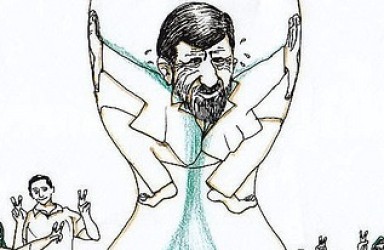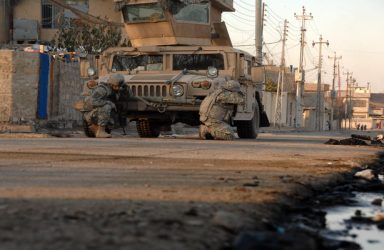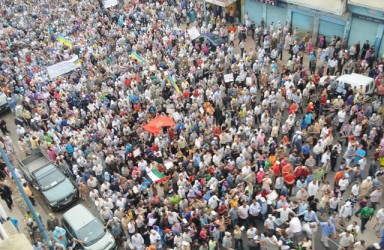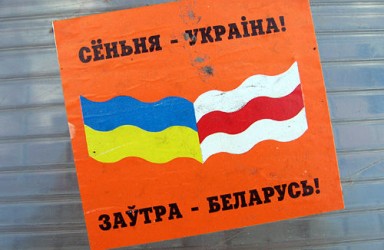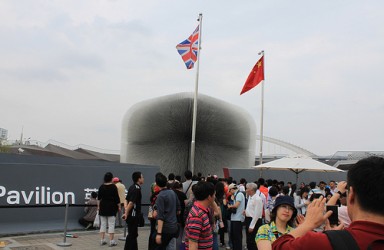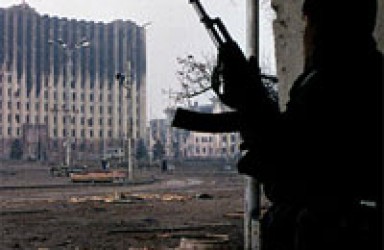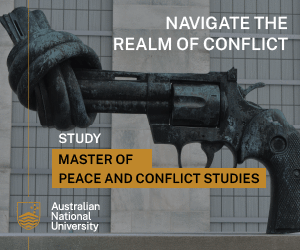Nuclear Non-Proliferation and Iran: Policy Options and Contexts
A nuclear Iran poses a number of risks, including the enhancement of its stated policies against Israel and the United States and its interests, adding extremely severe dangers to confronting in any way Iran’s policies that hinder and prevent peace in the Middle East including their support for terrorist groups and activities, and the possibility that a nuclear Iran could ignite a regional arms race.
The US invasion of Iraq: failings and consequences
The United States’ decision to launch a preventive attack on Iraq in 2003 resulted in significant international resentment, plummeting approval ratings of the Bush administration and domestic disenchantment which manifested itself with subsequent election results. This was exacerbated by failure to find weapons of mass destruction, the mistreatment of prisoners in the Abu Ghraib prison, and the problematic occupation.
The Role of Foreign Actors in the Development of Democracy in the Middle East-North Africa
Foreign actors have played a significant role in the development of democracy in the region. Admittedly, however, it has not always been constructive. Given the ongoing political unrest in the region, there is an opportunity for them to play a far more constructive role in the development of democracy than they have in the past.
National identity reaffirmation in the post-Soviet era: The case of Belarus and Ukraine
Independence from the Soviet Union has led to both similarities and differences in the reinvention of national identities in Belarus and Ukraine. Belarusian identity is still within its infancy due to the strong Russian influences and the active role of the Belarusian government to prevent the rise of civil society organizations. In contrast, Ukrainian identity has developed sufficiently enough to separate itself from Russia.
Britain’s foreign policy toward China 1997-2001
Economic engagement with China serves Britain’s commercial interests while it also allows the UK government to put human rights at the heart of British foreign policy toward China. Through economic interdependence and participation in international organizations, the United Kingdom and China have mutual interests in maintaining a strong partnership. The development of a successful partnership can be brought about as the United Kingdom pursues a policy of economic engagement.
Democratisation and the decline of political violence in Northern Ireland and the Spanish Basque Country
This dissertation attempts to determine the impact of democratisation in helping undermine terrorism, by reaching a democratic compromise between all parties (as in Northern Ireland), or by delegitimising terrorist groups’ goals and means in the eyes of their audience (as in the Basque Country).
Are Security Issues Most Effectively Addressed by a Neo-Realist IR Approach?
Neo-realist theory has long been at the centre of the debate about security within International Relations. From its origins in Machiavelli and Hobbes, to Morgenthau and classical realism, neo-realism continues to be popular within the discipline, with thinkers such as Waltz and Mearsheimer offering seminal texts that discuss security from a neo-realist perspective.
How effective was the foreign policy of Sir Edward Grey 1906-14?
When Sir Edward Grey took office as Foreign Secretary, in early December, 1905, he did so at a crossroads in both British and European history. He faced numerous tests during his tenure in Whitehall and for the most part he handled them with distinction.
Did domestic considerations dictate Gorbachev’s foreign policy approach?
This essay argues that Gorbachev’s foreign policy approach was determined, to a high degree, by the domestic considerations the Soviet Union faced at that time. The idea that these domestic considerations simply ‘dictated’ Gorbachev’s foreign policy approach is, however, too simple.
How has Russia framed the conflict in Chechnya as part of the ‘War on Terror’?
The contrast between the nationalistic sentiment of self-determination emphasised in the First Chechen War and the rhetorical transition towards radical Islam in the Second Chechen War has been highlighted by many as evidence of the significance of the Chechen conflict in the global ‘War on Terror’. This essay will examine how Russia has managed to illustrate the Chechen conflict in terms of a global fight against international Islamic terrorism.
